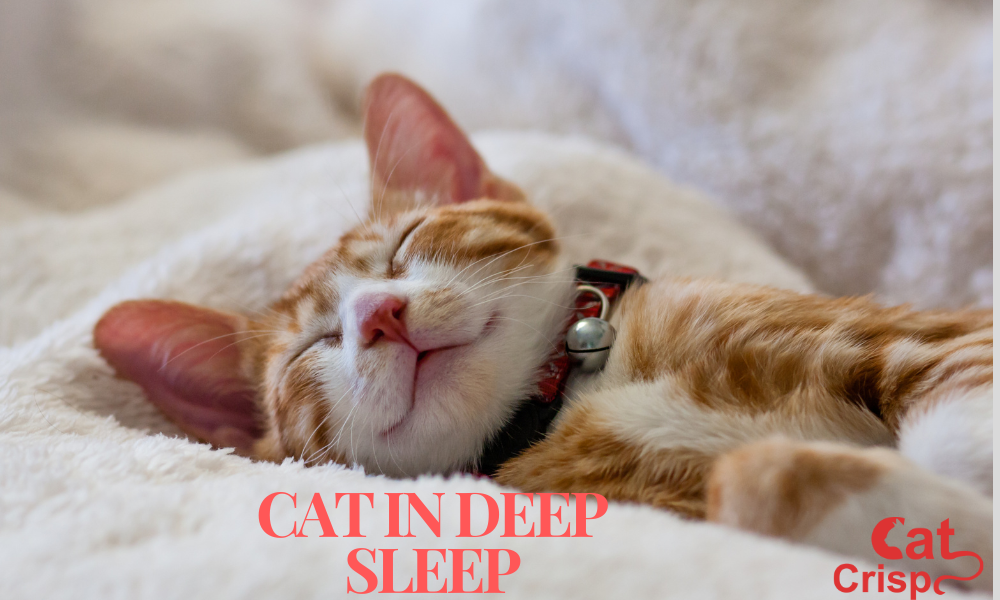Many people love cats. However, there is no need for a special reason to like this fluffy animal. Cats are highly valued as pets all over the world. Although cats have many qualities, there are many people who do not like cats.
One reason for this is that cat is sleepy and they are incredibly lazy creatures. Even if it doesn’t help us in our work, he wants to sleep all day.
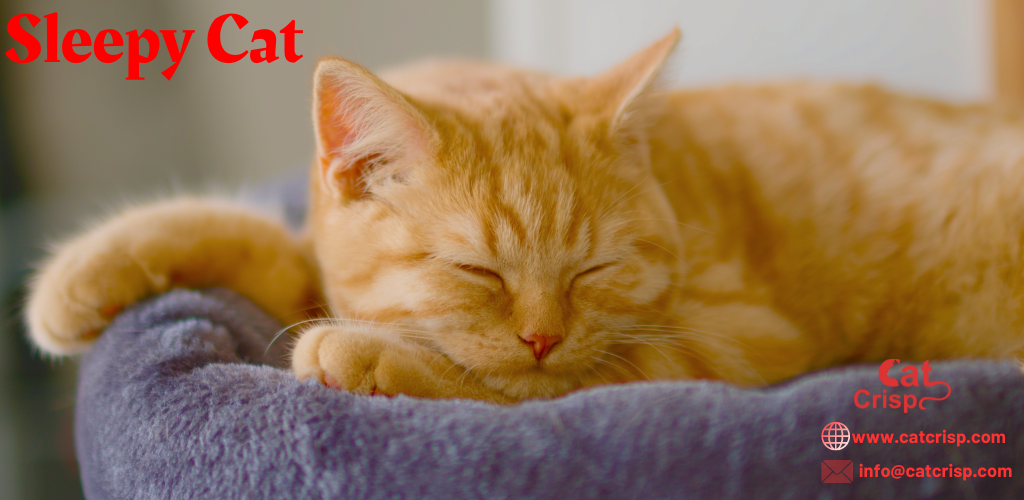
Table of Contents
ToggleWhat Researchers Says About Cat Is Sleepy
Two researchers from the University of Zurich in Germany—Scott Campbell and Irene Tobler—showed in one of their studies that domestic cats sleep about 10 to 13 hours per day. Even sleeping up to 17 hours a day is not unusual for them. However, cats do not sleep together. They spend only 50 to 110 minutes in one sleep.
No matter how many hours your cat sleeps, one question must have come to mind—why do cats sleep so much? We will try to find the answer to this question. But before that, you need to know, the cat is most active at what time? That is, when are they most active, moving or hunting?
According to David Sands, a zoologist from Lancashire, UK, cats are most active at dawn and dusk. Such animals are called crepuscular animals. Like nocturnal animals, they cannot be active in total darkness.
“Cats are the way they are because their genes have evolved over millions of years as low-light predators,” he says. Their eyesight is adapted to work best in the dim light of dawn or dusk. So animals see best at this time. That is why cats are most active during these times.
Cats use a lot of energy to be active. Finding, chasing, catching, and eating prey—all are skillful tasks.
Being a sedentary animal, they have to be active mainly during two times of the day. Nocturnal or diurnal animals are active only at night or during the day.
In order to be active at both times, they have developed a tendency to conserve energy. And what can be better than sleeping at idle time to accumulate this energy!
Yes, domestic cats don’t have to worry about food. Yet they accumulate strength due to instincts carried in their genes over millions of years. In order to be active in the morning and evening, he sleeps almost half of the night.
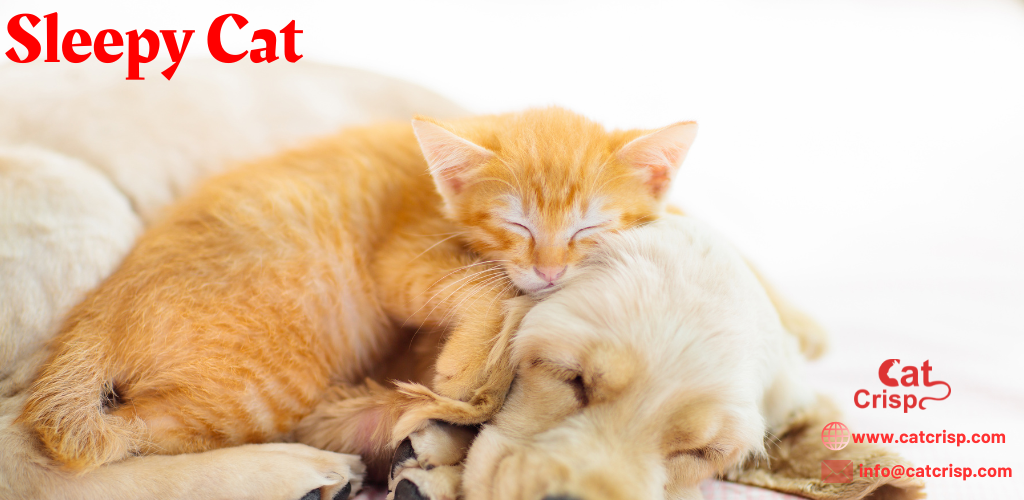
There have some points that’s why cat is sleepy?
1. Evolutionary Roots of Feline Sleep
To understand why cat is sleepy, it’s essential to look at their evolutionary history. Cats are natural predators, and their ancestors in the wild needed to conserve energy for hunting.
Hunting requires short bursts of intense energy, and sleep helps to recharge these energy reserves. This instinct has been passed down to domestic cats, even though they no longer need to hunt for their food.
2. The Structure of Cat Sleep
Cats’ sleep patterns are different from humans. While humans typically have long periods of deep sleep, cats have a more polyphonic sleep pattern, which means they sleep multiple times throughout the day and night. On average, a cat sleeps between 12 and 16 hours a day, with some cats sleeping up to 20 hours.
Cats experience both light and deep sleep. During light sleep, which makes up the majority of their slumber, cats remain alert to their surroundings.
This allows them to wake up quickly if there is any sign of danger or a potential meal. Deep sleep, on the other hand, is where they experience rapid eye movement (REM) sleep, which is crucial for growth and overall health.
Also Read: 10 Fun Fact About Cats
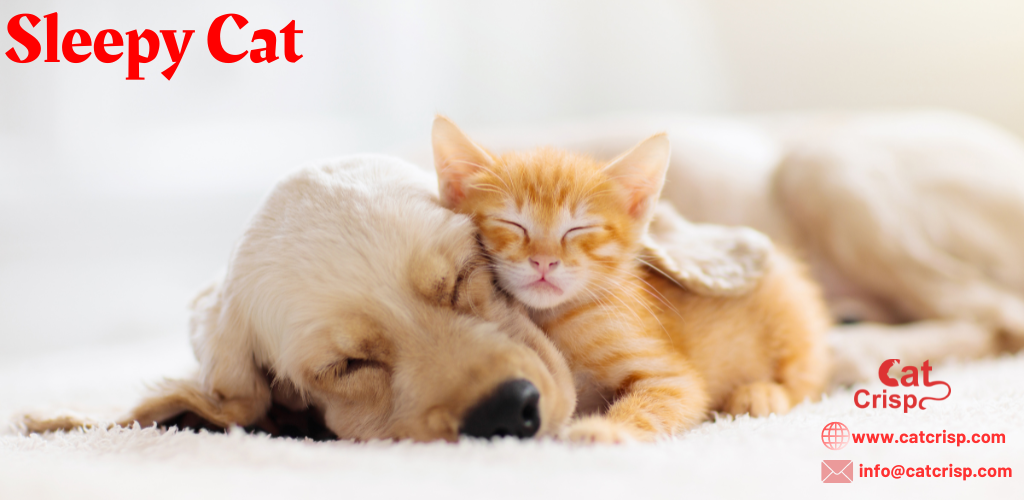
3. Age and Sleep
Your cat is sleepy because of age. Age is a significant factor in how much a cat sleeps. Kittens, for instance, require a lot of sleep to support their rapid growth and development.
They can sleep up to 20 hours a day, similar to newborn human babies. As cats reach adulthood, their sleep patterns stabilize, but they still require substantial rest. Senior cats may again increase their sleeping time due to decreased energy levels and potential health issues.
4. Health and Sleep
Just like humans, the health of a cat can influence its sleep patterns. Cats that are unwell or in pain may sleep more than usual. Conditions such as arthritis, dental disease, and infections can lead to increased sleep as the body attempts to heal itself. Conversely, hyperthyroidism can cause restlessness and reduced sleep in older cats.
Mental health also plays a role. Cats can suffer from stress, anxiety, and depression, which can all affect their sleep. Changes in the household, such as a new pet or moving to a new home, can disrupt a cat’s sleep patterns. Ensuring a stable and calm environment can help maintain healthy sleep habits.
5. Environmental Factors
The environment in which a cat lives can significantly impact its sleep. Cats are crepuscular animals, meaning they are most active during the dawn and dusk.
This behavior is rooted in their hunting instincts, as these times are optimal for catching prey. However, domestic cats often adjust their schedules to align more closely with their human families.
A safe, quiet, and comfortable sleeping area is crucial for a cat’s well-being. Cats prefer warm, soft places where they can feel secure. Providing a variety of cozy sleeping spots can help ensure your cat gets the rest it needs.
Disruptions like loud noises, bright lights, or other pets can interfere with a cat’s sleep, so creating a peaceful environment is essential.
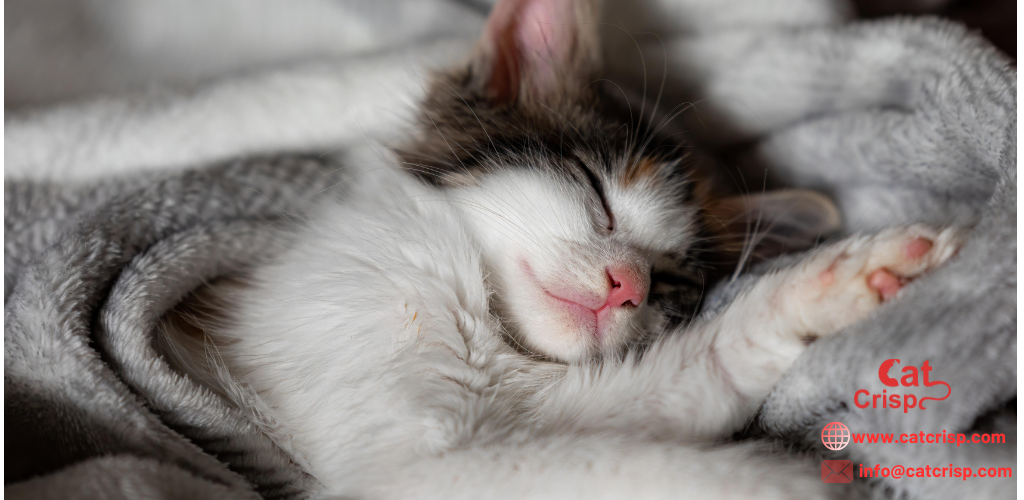
6. Nutrition and Sleep
Cat is sleepy because of diet and nutrition. It can also influence a cat’s sleep patterns. Proper nutrition is vital for maintaining a cat’s overall health and energy levels. A diet that meets all of a cat’s nutritional needs will help them maintain normal activity levels and a healthy sleep schedule. Overfeeding or underfeeding can lead to lethargy or hyperactivity, both of which can disrupt sleep.
Feeding schedules can also play a role. Cats are natural grazers, and in the wild, they eat small meals throughout the day. Providing small, frequent meals can help mimic this natural pattern and promote healthy sleep habits.
7. The Role of Activity
Physical and mental stimulation are crucial for a cat’s health and can affect their sleep. Cats that are active and engaged during their awake times are likely to sleep better. Playing with your cat, providing toys, and engaging in activities that stimulate their hunting instincts can help ensure they are tired enough to sleep soundly.
Lack of stimulation can lead to boredom and excess energy, which might result in a restless cat that has difficulty sleeping. Ensuring your cat gets enough exercise and mental stimulation can help regulate their sleep patterns.
8. Individual Differences
Every cat is unique, and their sleep patterns can vary widely. Some cats are naturally more active and require less sleep, while others may be more sedentary. Understanding your cat’s individual needs and behavior is crucial for ensuring they get the right amount of rest.
Conclusion
Cats are fascinating creatures with unique sleep patterns rooted in their evolutionary history and influenced by various factors, including age, health, environment, diet, and activity levels.
Understanding why cat is sleepy can help cat owners provide the best care and environment for their feline friends. By ensuring your cat has a comfortable, safe place to sleep, a nutritious diet, and plenty of mental and physical stimulation, you can help them maintain healthy sleep habits and overall well-being.
So the next time you see your cat snoozing the day away, you can rest assured, knowing that they are simply following their natural instincts and taking the necessary steps to maintain their health and energy.

